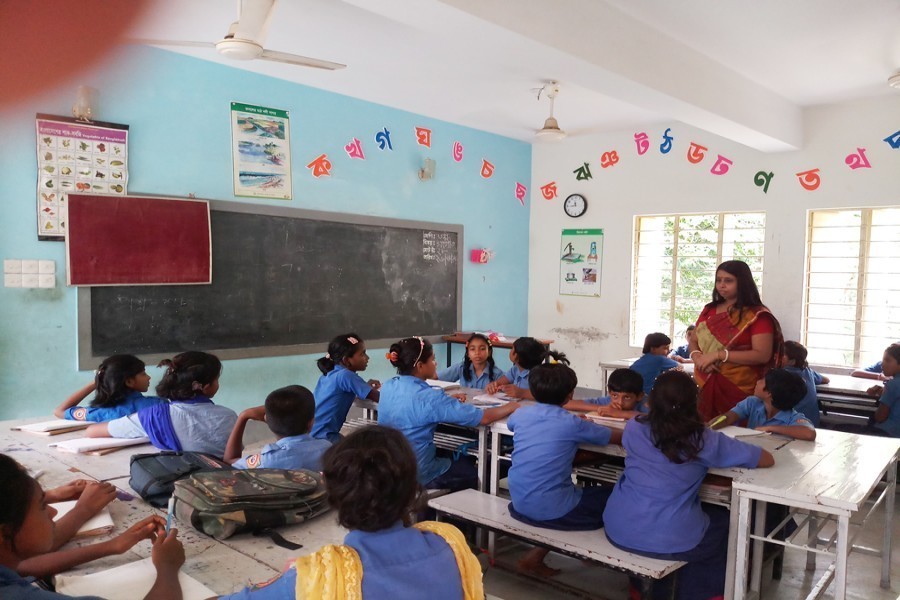The news was most touching. A kindergarten teacher lost her husband to Covid-19 and had to return to her parents who adopted her from an orphanage located in Dhaka's Sadarghat area years ago. Her school was closed and had nothing to fall back upon. Her adopting parents were infirm and had no savings. Moreover, her only child required baby food which is costly. So she started delivering goods of a local online platform during the lockdown. With the easing of restrictions, her job once again became redundant and she had to take the job of a cleaner for sheer survival. After publication of her story in a leading contemporary, monetary and other helps along with offer of better jobs poured in to transform her lot overnight.
However, not all are lucky like her. In Dhaka city another kindergarten teacher was found to sell vegetables on a rickshaw van near his school gate. He is not the only one who has been forced to take to a different trade never imagined before. Why this has happened needs hardly any elaboration. Suffice it to say that one and a half years' long closure has rendered these privately run educational institutions financially ruined.
According to a report, of the 40,000 such schools, 10,000 have gone out of business. More are likely to follow suit. Question may be asked why more such schools will fail to run at a time when educational institutions have been allowed to reopen. The crux of the problem lies here. Many of these schools have failed to ensure presence of only around 50 per cent attendance. In cases where parents lost their jobs left Dhaka or other cities. In other cases, their incomes have dropped so much that they are not willing to send their kids to schools for the three months left for completion of the academic year. They are not willing to pay the arrear tuition fees which along the admission fees at the beginning of the new academic year are their source of income.
Clearly many of the students will never return to their choice schools because of financial hardship. They will have to look for admission to government primary schools at the start of the academic year 2022. But with the income of tuition fees from half the number of or even fewer students, it is impossible for such kindergartens to run the show. Teachers were paid half or less their salary for the first six months. Then there was no payment. After reopening, teachers cannot sustain on reduced salaries.
There may be exceptions but the majority of kindergarten schools are in a bad shape. One of the reasons for this is the rented buildings in which such schools are operated. It is logical that these educational institutions were helped out of the difficult patch. Millions of students get educated ---at times better than in government primary schools --- in such facilities. If the government had to arrange for their education, the infrastructure, teaching staff's salary and other expenditure would have been staggering. So their service is not only complementary to the national effort towards achieving universal primary education but also contributory to reducing the government expenditure on education.
Evidently they deserve stimulus packages for running their institutions. If they announced they would forego the arrear tuition fees and make up for the lost foundational learning, many of the parents or guardians would have felt prompted to send their kids to schools. At least the attendance would be higher if not at the pre-pandemic level. If the government is serious, though, it should trace the missing students with help from such schools and devise a plan to bring them back to classes even if it required financial help to the families concerned. Otherwise, a significant number of students from some segments of society will be doomed to inflate the rank of a lost generation.


